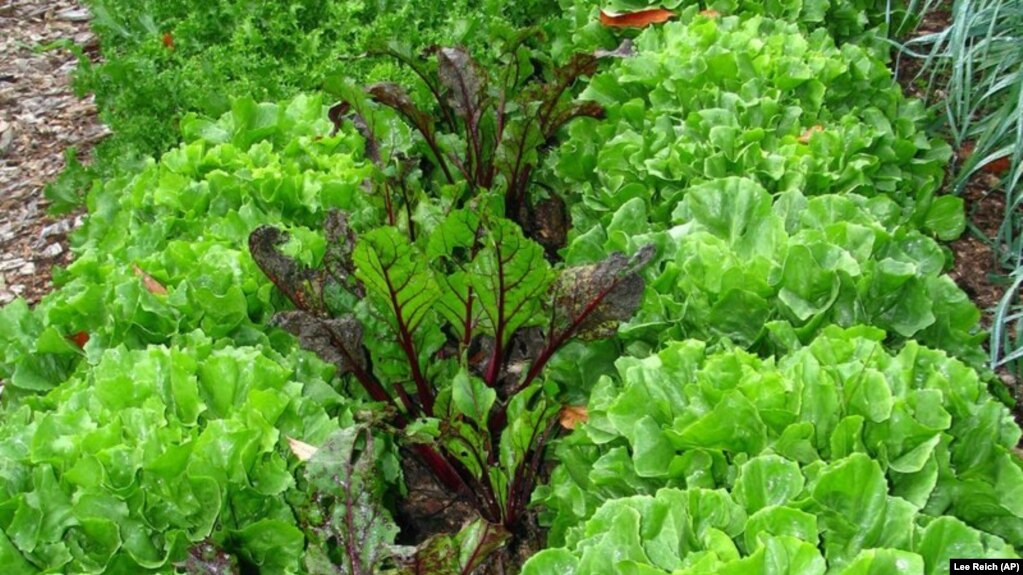庭の手入れー悩んでいませんか?
マンション暮らしの私には、庭の手入れと言ってもプランターの中のこと。
さて、みなさんはいかがでしょうか?
お悩みをお持ちの方には、Tipsがあるかもしれません。
今日のVOAは身近な問題です。
庭の雑草を抑える方法
How to Limit Weeds in Your Garden
食べられなく、花もつけない成長の早い植物である雑草は、庭師の悩みの種ですね。雑草を殺すために化学薬品を使う人もいます。他の人は、手で、または重機を使って、引き抜いたりします。幸いにも、雑草の成長を抑える方法は他にもありますよ。
根おおい:マルチング
手始めに、雑草を埋めることができるマルチングがあります。マルチングには、葉っぱや草刈り、木の小片などの有機物や、プラスチックなどの無機物が使われています。雑草を制御するために庭の地面の上に敷かれます。
有機マルチングは時間が経つと分解してしまうので、頻繁に庭に追加しなければなりません。それは悪いことではありません。なぜなら、それらの腐敗は植物のための栄養分と腐植を作り、土壌を湿った状態に保ち、新鮮な空気をたっぷりと含んでいるからです。
プラスチックマルチングは雑草を止めるもう一つの方法です。一般的な黒いプラスチックは敷くのが簡単です。また、それは効果的に雑草をブロックし、春には土壌がより早く暖かくなるのを助けます。他の色のプラスチックを使った最近の実験では、虫と植物の成長の両方に効果があることがわかっています。例えば、反射性のあるプラスチックマルチングは、植物を食べる昆虫を遠ざけることができます。
プラスチックの大きな問題は、時間が経つと分解してしまうことで、最終的には捨てなければならないということです。また、栄養素や腐植として土壌に何も追加されません。プラスチックはまた、土壌に届く空気を遮断することができます。
プラスチックと有機材料の両方の資質のいくつかを組み合わせたマルチング種類の1つに、紙があります。紙製のマルチングは敷くのが簡単で、最終的には分解します。しかし、紙は腐植や栄養分の面では土壌にほとんど影響を与えません。
鳥類
雑草が主に生えている大きな庭では、ちょっと変わった方法として、ガチョウとして知られている鳥を使って雑草を防除する方法があります。
若いガチョウは毎日、自分の体重分の雑草を食べます。ガチョウの小さなグループは、土地の半ヘクタールの雑草を取り除き、お互いの仲間を維持することができます。あなたが提供する必要があるのは、水、太陽からの保護、およびいくつかの追加の飼料です。また、ガチョウを入れて他の動物を締め出すために柵が必要です。しかし警告として一つ、トウモロコシを植えないことです。さもないと、食べられてしまいますよ。
雑草を制御する他の方法
最後に、雑草を直接攻撃するだけでなく、庭の植え方も間接的に雑草の成長に影響を与えます。
例えば、庭の植物の間隔を狭くすると、日光が地面に届かなくなり、雑草の成長を抑えることができます。また、ドリップ灌漑として知られている水やりの方法を使えば、雑草の代わりに少量の水を植物の根に向けることができます。
土を掘り起こすかどうかも雑草の成長に影響します。土の中には何百万もの雑草の種が眠っていて、光と空気によって目が覚めるのを待っているのです。
どの方法を使っても、雑草の成長を永久に止めることはできません。むしろ、庭での雑草の成長を抑えることが目標となります。
How to Limit Weeds in Your Garden
 This undated photo shows a bed with endive and beets growing together for autumn harvest in New Paltz, New York.
This undated photo shows a bed with endive and beets growing together for autumn harvest in New Paltz, New York.
Weeds, the fast-growing plants that cannot be eaten and do not bring flowers, are a common problem for gardeners. Some use chemicals to kill weeds. Others pull them up by hand or with heavy machinery. Luckily, there are other ways to limit their growth.
Mulches
For starters, there are mulches which can bury weeds. Mulches are made from organic material, such as leaves, grass cuttings, and small pieces of wood, or inorganic material like plastic. They are spread over the ground in a garden to control weeds.
Organic mulches break down over time so you must add more to your garden often. That is not a bad thing, because their decomposition creates nutrients for plants and humus to keep soils wet and full of fresh air.
Plastic mulch is another way to stop weeds. Common black plastic is easy to lay down. It also effectively blocks weeds and helps soil warm faster in the spring. Recent experiments with other colored plastic have shown effects on both bugs and plant growth. A reflective plastic mulch, for example, keeps some plant-eating insects away.
A major problem with plastic is that it breaks apart over time, so eventually it needs to be thrown away. It also adds nothing to the soil as far as nutrients or humus. And plastic also can block air from reaching the soil.
One kind of mulch that combines some of the qualities of both plastic and organic material is paper. Paper mulch is easy to lay down and eventually decomposes. However, paper adds little to the soil in terms of humus or nutrients.
Birds
For larger gardens where the weeds are mainly grasses, a somewhat unusual way to control them is using the birds known as geese.
Young geese will eat their weight in weeds every day. A small group of geese can clear weeds in half a hectare of land and keep each other company. All you need to provide is water, protection from the sun, and some additional feed. You also need barriers to keep the geese in and other animals out. One warning, though, do not plant corn or they will eat that, too.
Other ways to control weeds
Finally, in addition to direct attacks on weeds, how you plant your garden can indirectly influence weed growth.
For example, close spacing of plants in the garden blocks sunlight from reaching the ground and can limit weed growth. And using a watering method known as drip irrigation will direct small amounts of water to the roots of your plants instead of the weeds.
Whether or not you dig up your soil also influences weed growth. Lying in soil are millions of weed seeds just waiting to be awakened by light and air.
Using any or all of the methods will not permanently stop weed growth. Instead, your goal is simply to limit their growth in the garden.
_______________________________________________________________
Words in This Story
gardener(s) – n. someone who grows and takes care of the plants in a given area of ground
organic – adj. of, relating to, or obtained from living things
decomposition – n. the act of something such as dead plants and the bodies of dead animals slowly being destroyed and broken down by natural processes and chemicals
reflective – adj. causing light, sound, or heat to move away
drip – v. to let small amounts of a liquid fall
irrigation – n. the act of supplying something, such as land, with water by using artificial means, such as pipes